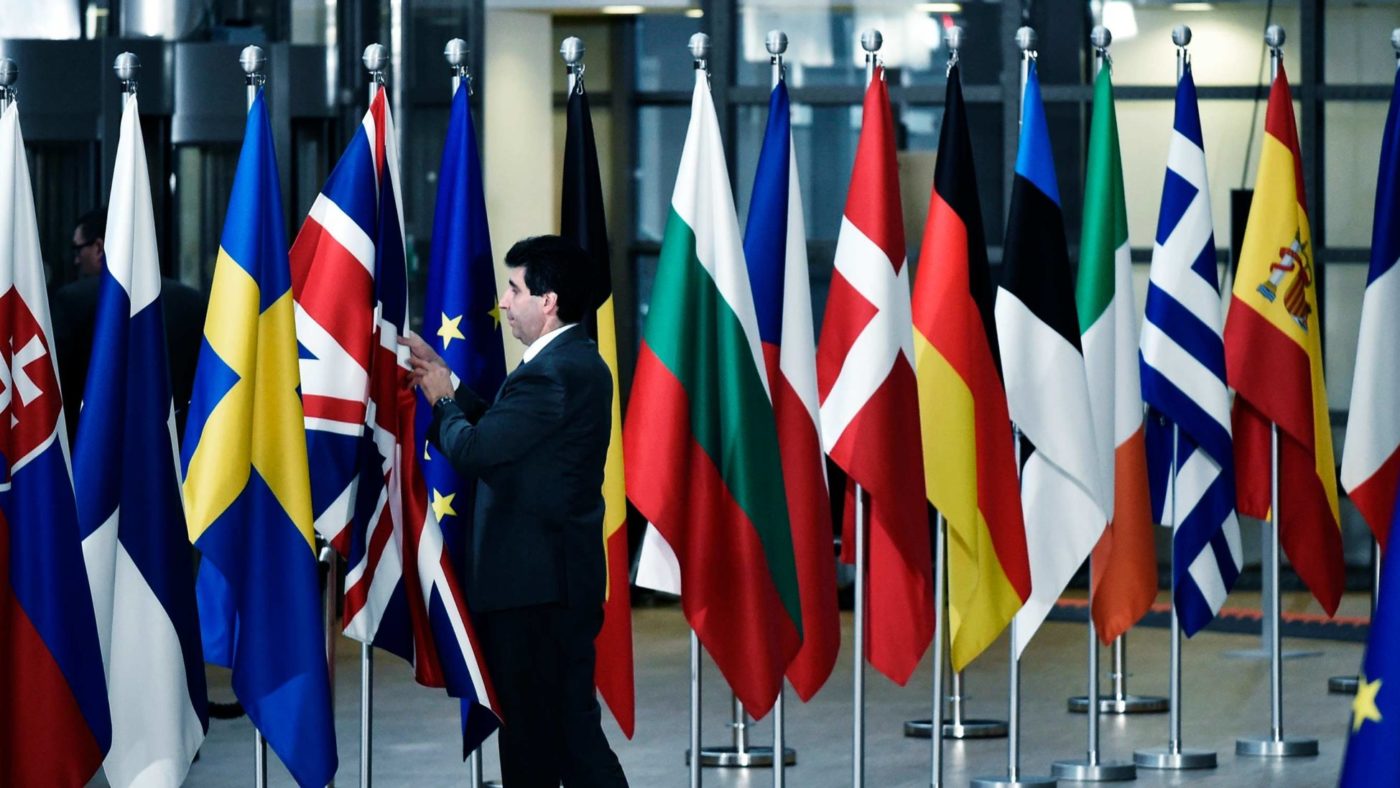Just along from the historic port of Constanţa, Mamaia is one of Romania’s most popular holiday resorts, boasting a long beach promenade. Like much infrastructure in the country, it has recently been updated with EU cohesion funds.
The completely flat strip of land alongside the Black Sea coast now features a cable car, which was running mostly empty when I visited. A dozen large outdoor screens displayed a Microsoft Windows desktop with an error message for several days.
The sights echoed the conversations held at a nearby conference on geopolitics of the Balkans and the Black Sea region, which Mamaia hosted for the second year in a row. On one panel, Moldova’s Deputy Prime Minister for European Integration, Iurie Leancă, was eloquent about the importance of his country’s eventual membership of the EU. The European anchor, he stressed, was fundamental to the success of countries east of the bloc’s current borders.
He was right. In the past, the enlargements of EU and NATO have been extraordinarily effective in supporting transitions away from authoritarianism towards democracy and a market economy. From Spain and Portugal to Central and Eastern Europe, EU accession provided an impetus for reforms and provided, through EU funds, a sorely needed boost to public investment.
But can this process go on indefinitely? Only 44 per cent of EU citizens favour future enlargements, according to the most recent Eurobarometer survey. In Germany and France the proportion is 31 per cent, in Austria the number is just 24 per cent. Besides workforce migration, seen as a threat to labour markets in “Old Europe”, some new member states have a reputation as free riders: always keen to receive EU money but rarely willing to bear their share of responsibility for the European project.
That reputation is not always warranted. There may be good reasons why Visegrad countries rejected the European Commission’s idea of refugee relocation quotas, or why Slovakia, then a new eurozone member, was less-than-enthusiastic about providing financial guarantees to Greece in 2010.
Yet the progress in strengthening governance has stalled in many new member states since they joined the bloc. Under their current governments, Hungary and Poland have embraced authoritarianism. In some countries, the EU has completely crowded out private investment and also served as a source of political patronage. Today, Slovakia and Hungary appear notably more corrupt than when they joined in 2004, according to the World Bank’s Worldwide Governance Indicators.
At the Mamaia conference, a representative of the European Commission’s directorate for enlargement presented the process as a technical exercise best left in the hands of experts. Accession talks are guided by strict rules and countries have to meet high standards of governance and the rule of law in order to make progress in negotiations.
A technocratic mentality that reduces enlargement to a legalistic, rules-based process is inadequate – and not only because the process lacks public support.
For one, proponents of enlargements have to rethink the incentives that governments face after they join the EU, in order to stop membership from being a one-way ratchet as is presently the case. Otherwise, future enlargements (if they take place at all) will not only increase wasteful spending but, more importantly, deepen political divisions within the Union.
Second, enlargement is not a goal in itself. It is only one of several tools through which the EU can shape its neighbourhood. There is little that the enlargement agenda does to address the most salient challenges facing the continent. Notwithstanding ongoing accession talks, Turkey’s EU membership is neither possible nor desirable. Clearly, both an end to the war in Syria and political stability in North Africa are of paramount importance to the EU. For both of those purposes, the enlargement agenda is of little avail.
Likewise, the accession-centric Eastern Partnership is a poor substitute for more muscular policies that would help countries such as Ukraine and Georgia keep the Kremlin’s machinations at bay.
The Balkans appear well-positioned to join the bloc in the coming years. But even that region has to first tackle a long list of problems, of which the recently ended stand-off over Macedonia’s official name was a relatively trivial example. Politicians in Serbia, for example, openly advocate a partition of Kosovo, while those in Kosovo and Albania entertain the possibility of unification of the two countries. Serbs in Bosnia, meanwhile, are seeking to secede from the fragile federal republic. It is hard to see how pressing for accession provides a solution to any of these problems without simultaneously turning the EU into a pawn in disputes over which it has little control.
The EU’s enlargements should result in more than questionable infrastructure improvements in Eastern Europe. For that, the EU needs to approach it as only one of a portfolio of tools through which the bloc projects influence in pursuit of its geopolitical interests. Whether European leaders can still think in those terms remains an open question.


